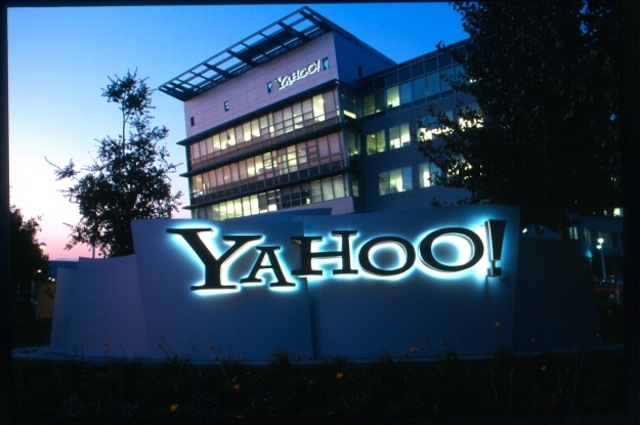The terms and conditions of these companies’ services are very draconian in the license conditions for users’ posts and the risks users face if something goes wrong.
Under these terms, social media companies can sue you if you they are sued over something you post, similarly they claim to have the rights to anything you post to their services.
Almost every service has similar terms with Instagram’s being a good example of just how onerous and unfair social media services’ these contracts are towards users. This unfairness starts with the preamble.
By accessing or using the Instagram website, the Instagram service, or any applications (including mobile applications) made available by Instagram (together, the “Service”), however accessed, you agree to be bound by these terms of use (“Terms of Use”). The Service is owned or controlled by Instagram, LLC (“Instagram”). These Terms of Use affect your legal rights and obligations. If you do not agree to be bound by all of these Terms of Use, do not access or use the Service.
This is the web equivalent of the ‘shrink wrap’ clauses of the boxed software world – by opening the box, or using the service, you agree to the terms regardless of how stupid, unfair or counter-intuitive they are.
There may be times when we offer a special feature that has its own terms and conditions that apply in addition to these Terms of Use. In those cases, the terms specific to the special feature control to the extent there is a conflict with these Terms of Use.
Because the services are complex, management might create a whole new set of terms to cover problem areas. Again, it’s put on the user to understand and know when ‘special features’ have specific terms that over-ride the standard conditions.
ARBITRATION NOTICE: EXCEPT IF YOU OPT-OUT AND EXCEPT FOR CERTAIN TYPES OF DISPUTES DESCRIBED IN THE ARBITRATION SECTION BELOW, YOU AGREE THAT DISPUTES BETWEEN YOU AND INSTAGRAM WILL BE RESOLVED BY BINDING, INDIVIDUAL ARBITRATION AND YOU WAIVE YOUR RIGHT TO PARTICIPATE IN A CLASS ACTION LAWSUIT OR CLASS-WIDE ARBITRATION.
As an example of how unfair these contracts are, then this clause is probably the best. If you drill down into the arbitration processes described at the end of the term, you find this can be subverted which is probably necessary as the clause on its own is probably unenforceable.
Basic Terms
Instagram’s basic terms are pretty well identical to almost every social media service. While the layout and some of the wording may be different, the conditions placed on users are standard.
At the very end of this section is the clause that allows Instagram to suspend any account for any reason. While this is standard across social media and cloud computing services it gives great power to Instragram’s management and is something that all internet users need to be aware of.
1. You must be at least 13 years old to use the Service.
This clause is standard to all US based online services. This is not because of some altruistic concern about children, its to comply with the Children’s Online Privacy Protection Act (COPPA).
2. You may not post violent, nude, partially nude, discriminatory, unlawful, infringing, hateful, pornographic or sexually suggestive photos or other content via the Service.
This clause is a cop-out which, by its wide definition, can catch almost any behaviour depending who is making the value judgement. Most famously the equivalent clause in Facebook’s terms has underpinned that company’s War On Nipples.
A notable aspect of this clause are the two words “other content” – what ‘other content’ is that? Well, it could be anything and it opens the opportunity for Instagram to shut down any user if they want to. The online blockade of Wikileaks is an example of how these nebulous words can be used.
3. You are responsible for any activity that occurs through your account and you agree you will not sell, transfer, license or assign your account, followers, username, or any account rights. With the exception of people or businesses that are expressly authorized to create accounts on behalf of their employers or clients, Instagram prohibits the creation of and you agree that you will not create an account for anyone other than yourself. You also represent that all information you provide or provided to Instagram upon registration and at all other times will be true, accurate, current and complete and you agree to update your information as necessary to maintain its truth and accuracy.
The currency in trade for social media services is the information about their users – so it’s necessary they know when you change jobs, get married or move to a new city. Naturally there isn’t a corresponding obligation on Instagram to inform users of service changes.
For social media experts and consultants this clause shows why its important to get a release from clients before setting up accounts on their behalf. Similar clauses apply to almost every service with Facebook being particularly touchy about who can and can’t set up company pages.
The ignorance of social media experts of the terms and conditions in the services they advise clients on is breathtaking and much of the mis-informed commentary over Instagram’s changes.
4. You agree that you will not solicit, collect or use the login credentials of other Instagram users.
A perfectly fair clause to protect users’ login details. This is a standard Acceptable Usage Policy on most corporate networks and online services.
5. You are responsible for keeping your password secret and secure.
This clause is also fair. It’s your responsibility to keep your details safe. It is interesting though that Instagram don’t assume any responsibility for protecting users’ details.
6. You must not defame, stalk, bully, abuse, harass, threaten, impersonate or intimidate people or entities and you must not post private or confidential information via the Service, including, without limitation, your or any other person’s credit card information, social security or alternate national identity numbers, non-public phone numbers or non-public email addresses.
Most social media users overlook this clause and many skirt with problems. Were Facebook – which has similar rules – and other services to properly enforce this rule against ill mannered users, much of the debate on Internet bullying would settled.
7. You may not use the Service for any illegal or unauthorized purpose. You agree to comply with all laws, rules and regulations (for example, federal, state, local and provincial) applicable to your use of the Service and your Content (defined below), including but not limited to, copyright laws.
Covering Your Ass (CYA) is a key management performance indicator and the primary concern of any corporate attorney. This clause covers the backsides of Instagram and Facebook’s management against illegal behaviour by their customers.
Whether these terms are enough to deflect responsibility away from the social media services for information that’s uploading is a topic that’s maintaining the lifestyles of a large number of lawyers and will continue to for the foreseeable future.
8. You are solely responsible for your conduct and any data, text, files, information, usernames, images, graphics, photos, profiles, audio and video clips, sounds, musical works, works of authorship, applications, links and other content or materials (collectively, “Content”) that you submit, post or display on or via the Service.
This clause is the classic desperate CYA term to push responsibility for copyright infringement, obscenities or other legal complications onto users.
9. You must not change, modify, adapt or alter the Service or change, modify or alter another website so as to falsely imply that it is associated with the Service or Instagram.
Another fair clause to avoid spoofing or ‘man in the middle’ attempts to steal passwords. Sadly the bad guys don’t care about stinkin’ terms and conditions.
10. You must not access Instagram’s private API by means other than those permitted by Instagram. Use of Instagram’s API is subject to a separate set of terms available here: http://instagram.com/about/legal/terms/api/ (“API Terms”).
For social media services the Application Program Interface (API) is an essential factor in a platform’s success. Allowing others to plug into feeds and data has been one of the ingredients of Twitter’s success.
Given the importance of APIs, it’s no surprise services want to control access. How Facebook and Instagram balance the users’ demands to share with the need to control data will be one of their great management challenges.
11. You must not create or submit unwanted email, comments, likes or other forms of commercial or harassing communications (a/k/a “spam”) to any Instagram users.
No spamming. This is good.
12. You must not use domain names or web URLs in your username without prior written consent from Instagram.
This term is a funny little one aimed at controlling spammers and marketers. Fair enough although it will irritate some business users.
13. You must not interfere or disrupt the Service or servers or networks connected to the Service, including by transmitting any worms, viruses, spyware, malware or any other code of a destructive or disruptive nature. You may not inject content or code or otherwise alter or interfere with the way any Instagram page is rendered or displayed in a user’s browser or device.
At first reading this clause is fair, although the bad guys don’t care. Restricting how an Instagram page is displayed or rendered on a user’s device though may cause problems with some equipment. We’ll see how that pans out.
14. You must comply with Instagram’s Community Guidelines, available here: http://help.instagram.com/customer/portal/articles/262387-community-guidelines.
Instagram’s community guidelines are worth a post in themselves although the terms and conditions cover the much of what users can and can’t do.
15. You must not create accounts with the Service through unauthorized means, including but not limited to, by using an automated device, script, bot, spider, crawler or scraper.
No scraping. Which again is fair enough although those who steal content from other sites don’t care about terms and conditions.
16. You must not attempt to restrict another user from using or enjoying the Service and you must not encourage or facilitate violations of these Terms of Use or any other Instagram terms.
Another standard clause with little to object to.
17. Violation of these Terms of Use may, in Instagram’s sole discretion, result in termination of your Instagram account. You understand and agree that Instagram cannot and will not be responsible for the Content posted on the Service and you use the Service at your own risk. If you violate the letter or spirit of these Terms of Use, or otherwise create risk or possible legal exposure for Instagram, we can stop providing all or part of the Service to you.
This last clause is really important as it allows Instagram to terminate accounts at their ‘sole discretion’. This is a standard clause in every cloud computing, social media and online service.
In the past this has meant people whose names Google doesn’t like have had their accounts suspended while dozens of online traders have found their accounts suspended. A Norwegian woman even found she lost her entire ebook collection when Amazon closed her account without notice.
As online services can shut you down without notice or cause, its important not to rely on these providers or invest too much into their products. This is a a serious threat to many businesses who depend on these services as well as a weakness in the social media business model.
General Conditions
Instagram’s general conditions are where the real legal meat is and where many commentators have overlooked the risks in using these services.
The general conditions start with a re-iteration of the previous term
1. We reserve the right to modify or terminate the Service or your access to the Service for any reason, without notice, at any time, and without liability to you. You can deactivate your Instagram account by logging into the Service and completing the form available here: https://instagram.com/accounts/remove/request/. If we terminate your access to the Service or you use the form detailed above to deactivate your account, your photos, comments, likes, friendships, and all other data will no longer be accessible through your account (e.g., users will not be able to navigate to your username and view your photos), but those materials and data may persist and appear within the Service (e.g., if your Content has been reshared by others).
Again, we reserve the right to shut you down without notice or liability. The first you will know of a problem is when the service stops working and all your pictures and other information is lost.
That some things, particularly shared photos, may persist on the service after an account is closed down is a consequence of the social features of these sites. Facebook, Twitter and others make the same point in their conditions.
2. Upon termination, all licenses and other rights granted to you in these Terms of Use will immediately cease.
If we decide to can your account you lose your rights, not that you had any though.
3. We reserve the right, in our sole discretion, to change these Terms of Use (“Updated Terms”) from time to time. Unless we make a change for legal or administrative reasons, we will provide reasonable advance notice before the Updated Terms become effective. You agree that we may notify you of the Updated Terms by posting them on the Service, and that your use of the Service after the effective date of the Updated Terms (or engaging in such other conduct as we may reasonably specify) constitutes your agreement to the Updated Terms. Therefore, you should review these Terms of Use and any Updated Terms before using the Service. The Updated Terms will be effective as of the time of posting, or such later date as may be specified in the Updated Terms, and will apply to your use of the Service from that point forward. These Terms of Use will govern any disputes arising before the effective date of the Updated Terms.
As previously pointed out, while users are required to inform Instagram of changes to their account details; the service is under no obligation to inform you when they change conditions.
This is common to all online services and is a hangover from the boxed software days when vendors like Microsoft and Adobe claimed the right to change the terms of contract unilaterally.
4. We reserve the right to refuse access to the Service to anyone for any reason at any time.
Just in case you were in any doubt, Instagram can turn of your account whenever they feel like it.
5. We reserve the right to force forfeiture of any username for any reason.
This clause is important as social media sites have shown themselves to be quick to pander to the whims of governments, large corporations or celebrities. If someone more powerful than you decides they have right to your screen name, Instagram will give it to them just as other service will.
6. We may, but have no obligation to, remove, edit, block, and/or monitor Content or accounts containing Content that we determine in our sole discretion violates these Terms of Use.
Again this clause just re-iterates what’s already been stated. The notable part of this clause is Instagram deny that they are obligated to remove offensive content or anything that breaches their terms.
Every other online service has a similar clause and it illustrates the inherent unfairness in these contracts in that users are liable, but the service accepts no responsibility for anything it does or doesn’t do.
7. You are solely responsible for your interaction with other users of the Service, whether online or offline. You agree that Instagram is not responsible or liable for the conduct of any user. Instagram reserves the right, but has no obligation, to monitor or become involved in disputes between you and other users. Exercise common sense and your best judgment when interacting with others, including when you submit or post Content or any personal or other information.
Users are responsible but the service is not. Instagram’s management might decide to become involved in vicious online disputes or cyberbullying, but then again they may not.
8. There may be links from the Service, or from communications you receive from the Service, to third-party web sites or features. There may also be links to third-party web sites or features in images or comments within the Service. The Service also includes third-party content that we do not control, maintain or endorse. Functionality on the Service may also permit interactions between the Service and a third-party web site or feature, including applications that connect the Service or your profile on the Service with a third-party web site or feature. For example, the Service may include a feature that enables you to share Content from the Service or your Content with a third party, which may be publicly posted on that third party’s service or application. Using this functionality typically requires you to login to your account on the third-party service and you do so at your own risk. Instagram does not control any of these third-party web services or any of their content. You expressly acknowledge and agree that Instagram is in no way responsible or liable for any such third-party services or features. YOUR CORRESPONDENCE AND BUSINESS DEALINGS WITH THIRD PARTIES FOUND THROUGH THE SERVICE ARE SOLELY BETWEEN YOU AND THE THIRD PARTY. You may choose, at your sole and absolute discretion and risk, to use applications that connect the Service or your profile on the Service with a third-party service (each, an “Application”) and such Application may interact with, connect to or gather and/or pull information from and to your Service profile. By using such Applications, you acknowledge and agree to the following: (i) if you use an Application to share information, you are consenting to information about your profile on the Service being shared; (ii) your use of an Application may cause personally identifying information to be publicly disclosed and/or associated with you, even if Instagram has not itself provided such information; and (iii) your use of an Application is at your own option and risk, and you will hold the Instagram Parties (defined below) harmless for activity related to the Application.
This is where the complexity of APIs comes into play, if the user grants access to a third party application that trashes their reputation of account then there are risks to the service and the individual. Once again the terms push all the responsibility onto the user.
While this is fair enough should a user install an app, irritatingly Instagram doesn’t accept responsibility for services they might recommend. Again, you are responsible and they are not.
9. You agree that you are responsible for all data charges you incur through use of the Service.
It’s hard to hold Instagram responsible for ISP or telco charges although many users would have no idea of the costs or risks of using the service on certain data plans.
10. We prohibit crawling, scraping, caching or otherwise accessing any content on the Service via automated means, including but not limited to, user profiles and photos (except as may be the result of standard search engine protocols or technologies used by a search engine with Instagram’s express consent).
Another clause that re-iterates what we already know with a little twist about search engines needing Instagram’s consent.
Rights
The least understood part of social media are usage and intellectual property rights. This area has caused the most outrage and generated the most misinformation.
1. Instagram does not claim ownership of any Content that you post on or through the Service. Instead, you hereby grant to Instagram a non-exclusive, fully paid and royalty-free, transferable, sub-licensable, worldwide license to use the Content that you post on or through the Service, subject to the Service’s Privacy Policy, available here http://instagram.com/legal/privacy/, including but not limited to sections 3 (“Sharing of Your Information”), 4 (“How We Store Your Information”), and 5 (“Your Choices About Your Information”). You can choose who can view your Content and activities, including your photos, as described in the Privacy Policy.
Who owns your pictures and other creatives works is the most contentious issue in social media. The key in this clause is the following;
you hereby grant to Instagram a non-exclusive, fully paid and royalty-free, transferable, sub-licensable, worldwide license to use the Content that you post on or through the Service
It has to be understood that, regardless of what Instagram’s management say to the contrary, they have the right to sell your photos and anything else you choose to post to the service.
This clause is not unique to Instagram and should be kept in mind whenever you post baby pictures, wedding photos or the eulogy to your grandma online, not to mention your company’s logo or other creative works.
2. Some of the Service is supported by advertising revenue and may display advertisements and promotions, and you hereby agree that Instagram may place such advertising and promotions on the Service or on, about, or in conjunction with your Content. The manner, mode and extent of such advertising and promotions are subject to change without specific notice to you.
While Instagram’s management have publicly backed down on the original advertising changes that upset their users, this clause leaves the door open to reintroducing those adverts without notice.
3. You acknowledge that we may not always identify paid services, sponsored content, or commercial communications as such.
Again this is not a step back from the original changes that upset users. How Instagram manage to inject unidentified adverts into users’ feeds without compromising the service will be worth watching.
4. You represent and warrant that: (i) you own the Content posted by you on or through the Service or otherwise have the right to grant the rights and licenses set forth in these Terms of Use; (ii) the posting and use of your Content on or through the Service does not violate, misappropriate or infringe on the rights of any third party, including, without limitation, privacy rights, publicity rights, copyrights, trademark and/or other intellectual property rights; (iii) you agree to pay for all royalties, fees, and any other monies owed by reason of Content you post on or through the Service; and (iv) you have the legal right and capacity to enter into these Terms of Use in your jurisdiction.
This clause is the most pernicious in social media circles – it means that if Instagram is sued for something you posted then you are responsible for all their costs.
In many ways this clause is social media’s doomsday machine; the first service that tries to claim costs against a user will bring the whole social media business model down as subscribers stop posting content.
5. The Service contains content owned or licensed by Instagram (“Instagram Content”). Instagram Content is protected by copyright, trademark, patent, trade secret and other laws, and, as between you and Instagram, Instagram owns and retains all rights in the Instagram Content and the Service. You will not remove, alter or conceal any copyright, trademark, service mark or other proprietary rights notices incorporated in or accompanying the Instagram Content and you will not reproduce, modify, adapt, prepare derivative works based on, perform, display, publish, distribute, transmit, broadcast, sell, license or otherwise exploit the Instagram Content.
What’s ours is ours, and what’s yours is ours too. The standard business model of social media.
6. The Instagram name and logo are trademarks of Instagram, and may not be copied, imitated or used, in whole or in part, without the prior written permission of Instagram, except in accordance with our brand guidelines, available here: http://help.instagram.com/customer/portal/articles/182487. In addition, all page headers, custom graphics, button icons and scripts are service marks, trademarks and/or trade dress of Instagram, and may not be copied, imitated or used, in whole or in part, without prior written permission from Instagram.
Ditto above.
7. Although it is Instagram’s intention for the Service to be available as much as possible, there will be occasions when the Service may be interrupted, including, without limitation, for scheduled maintenance or upgrades, for emergency repairs, or due to failure of telecommunications links and/or equipment. Also, Instagram reserves the right to remove any Content from the Service for any reason, without prior notice. Content removed from the Service may continue to be stored by Instagram, including, without limitation, in order to comply with certain legal obligations, but may not be retrievable without a valid court order. Consequently, Instagram encourages you to maintain your own backup of your Content. In other words, Instagram is not a backup service and you agree that you will not rely on the Service for the purposes of Content backup or storage. Instagram will not be liable to you for any modification, suspension, or discontinuation of the Services, or the loss of any Content. You also acknowledge that the Internet may be subject to breaches of security and that the submission of Content or other information may not be secure.
Once again, Instagram’s management accept no responsibility for anything. Including actually providing the service they claim to supply.
8. You agree that Instagram is not responsible for, and does not endorse, Content posted within the Service. Instagram does not have any obligation to prescreen, monitor, edit, or remove any Content. If your Content violates these Terms of Use, you may bear legal responsibility for that Content.
As in the rest of the document, all responsibility and risk lies with the user, not the provider.
9. Except as otherwise described in the Service’s Privacy Policy, available at http://instagram.com/legal/privacy/, as between you and Instagram, any Content will be non-confidential and non-proprietary and we will not be liable for any use or disclosure of Content. You acknowledge and agree that your relationship with Instagram is not a confidential, fiduciary, or other type of special relationship, and that your decision to submit any Content does not place Instagram in a position that is any different from the position held by members of the general public, including with regard to your Content. None of your Content will be subject to any obligation of confidence on the part of Instagram, and Instagram will not be liable for any use or disclosure of any Content you provide.
If you’re dumb enough to post it, then don’t whine if whatever you published ends up on the 6 o’clock news, the Huffington Post or in a half time ad during the Super Bowl.
10. It is Instagram’s policy not to accept or consider content, information, ideas, suggestions or other materials other than those we have specifically requested and to which certain specific terms, conditions and requirements may apply. This is to avoid any misunderstandings if your ideas are similar to those we have developed or are developing independently. Accordingly, Instagram does not accept unsolicited materials or ideas, and takes no responsibility for any materials or ideas so transmitted. If, despite our policy, you choose to send us content, information, ideas, suggestions, or other materials, you further agree that Instagram is free to use any such content, information, ideas, suggestions or other materials, for any purposes whatsoever, including, without limitation, developing and marketing products and services, without any liability or payment of any kind to you.
Unsolicited contributions won’t be paid for, which is standard for the online world.
The rest of the contract
Instagram’s terms and conditions go on for several thousand more words detailing dispute procedures, warranties and which laws apply – specifically the state of California. All of which only emphasise how one-sided the contract is.
An amusing touch in the Governing Law and Venue section is Instagram’s disavowal of the United Nations (in their capitals);
WILL SPECIFICALLY NOT BE GOVERNED BY THE UNITED NATIONS CONVENTIONS ON CONTRACTS FOR THE INTERNATIONAL SALE OF GOODS
In other words, “we’re Americans – you can prise our unfair contracts out of our cold, dead hands.”
The serious aspect to this is that there is nothing in Instagram’s conditions that is unusual, the claiming of an unlimited license over posted content and shifting all responsibility onto the user are standard procedure for cloud computing, social media and other online services.
Before using them, you need to understand that these services are not your friends and do not have your professional or business interests at heart. The better you understand this, the better equipped you are at using these services to your advantage.




